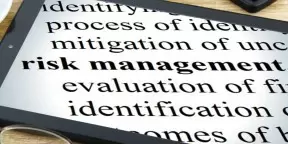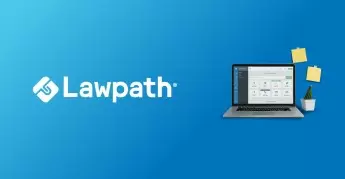Starting a Business
Are you thinking of starting a business but have no idea how to get started? Don’t worry, you’re not definitely alone! We’ve put together this checklist to get you clued up and confident for your new business venture.
Continue Reading Continue Reading93 MEMBERS
Join group

Identify weak areas in your business and develop a strategy for improvement

Map out your long-term growth plan and develop strategies to achieve your goals

Find the best capital funding opportunities that will give your business the resources it needs.

Develop and maintain effective partnerships that wll help you grow and thrive.

Successfully retain customers with customer and brand loyalty initiatives.

Create and develop new products and services or refine existing offerings.

Assess market trends and give your business a competitive edge to succeed.

Devise a strategy that will maximise your sales and generate a higher ROI.

Identify your strengths, weaknesses and find solutions for complex business challenges

Create innovative business ideas that can be monetised and keep your business current.

From brand strategy to customer and go-to-market strategy

Fundamentally change how you operate and deliver value to customers with digital technology

Develop an actionable plan to achieve your long-term business goals

Identify, assess and manage a wide range of risks and threats that could harm your business.

Refine your ideas and develop a robust and viable business plans

When merging with another company, acquiring a new one or undertaking an internal restructure

Get expert advice to hit the ground running in your new business venture.
6 things you should know before starting a business
That moment when 'doors are open' there's no turning back. Jumping in the deep end and 'learning to swim' can be a great way to teach yourself how to survive in your business - but here are 6...
3.23K views
What qualifications or certificates do you need to start a translation business?
Hello, I am thinking about making my own small business in translating in Australia/Queensland, but I have no idea what qualification(s) I need. Would a 'certificate in..... ' be sufficient, or...
1.19K views

Marcus Tjen at Rugged Computing
Go to this website and get accreditation from them: https://www.naati.com.au
7 Things to Consider When Starting a Business While Working Full Time
Starting a business isn't easy. Starting a side business while you maintain a full time job at the same time is even harder. Balancing the demands of your job while you work (many) additional hours...
3.57K views
What was your reason behind starting a business?
The one thing that I love about small business is that each one has its own story. I'd love to get to know each face behind the businesses, so please tell me how and why did you start your small...
130 views

Tim Greig, Owner at Green Galah Pty Ltd
My wife and I decided there had to be a better way of providing service in the domestic cleaning market. So many cleaners flop around doing as little as possible, missing days because of car problems, ... expand
There is a difference between why I thought I started my business and what the real reason turned out to be.
My wife and I decided there had to be a better way of providing service in the domestic cleaning market. So many cleaners flop around doing as little as possible, missing days because of car problems, equipment problems...the excuses were endless.
I had been a business coach for a number of years and while enjoying my client's success understood that it was their business and not mine.
So why not bring the desire to have my own business (other than coaching) together to bridge the 'gap of poor service' in the industry.
Has it been hard? I guess so, but I love the challenge. Do we have work/life balance? Who cares! I don't really understand that term anyway. Does it mean when you are working you are dead? I would be very surprised if anyone can point to a 'job' that has work/life balance.
We can walk or cycle to our office because we decided to lease one within a bicycle ride of home. We can go home when we want and start when we want. We can chose to focus on whatever we want to, in OUR business.
And what are the real reasons?
Running your own business is a reflection of life: you have ups and downs; successes and failures
You meet, and engage with a broad spectrum of people not just as an employee, a cog, but as an individual 'out there' making it happen.
You are challenged to grow; the more success & failure you have the more you grow...if you keep going.
And lastly, for me there is the sense of making a real difference in peoples lives: our employees and their families; our customers and anyone we come across who can't be helped but be infected by our enthusiasm.
How much does it cost to start an electrician business?
How much does it cost to start a small electrician business to service a local area? What are the typical costs included, e.g. equipment, licensing, etc?
374 views

Cliona Elliott, SEO Copywriter at Intrepid Travel
Unfortunately I can’t speak from experience on this one, but from my research, it costs at least $5,000 to $10,000 to start your own electrician business in Australia. However, this could be considerably more depending on the business structure you choose, whether you operate alone or hire staff, whether you rent an office space or do your paperwork from home, etc. Some of the costs you’ll need to think about when starting your electrician business include:
Business registration (business name, tax registration, company incorporation, etc)
Business licenses and permits
Business insurance
Legal advice and documentation
Tools and equipment
Business vehicle
Signage
Office equipment and supplies
Marketing
Hiring staff/payroll
Hope this helps! It would be great to hear from those who have started their own electrician business and can share some real-life insight!
Why Investing in Childcare Centres Is the Next Big Thing
A lot of people underestimate the prospects of childcare centres as actual businesses that provide vital services. With the current government support and regulations, an increase in maternal...
2.14K views
How much does it cost to start a small business in Australia?
I know this is a bit of a long shot as every business is unique, but can anyone share the average cost to start a small business in Australia? What are the average costs involved from legal all the...
449 views

Yee Trinh, Cofounder at SavvySME
Very good question! As you mentioned, every business is unique and it’s very difficult to say how much it costs to start a business without knowing the type of business you want to start, industry, where you’ll operate from and whether you need to employ staff among other factors. Some businesses like dropshipping, for example, can be started with minimal startup costs, while others such as brick and mortar retail shops or cafes require more startup capital. In other words, how long is a piece of string?! That being said, research shows that the average startup cost for Australian businesses typically ranges between $3,000 to $10,000. Again, the upfront investment could be considerably more depending on the factors discussed above.
Just to give you an idea, some of the startup costs you’ll need to think about include:
ABN, business name and tax registration
Commercial lease/rent
Shopfitting/office furniture and supplies
Utilities
Insurance
Website design and domain registration
Inventory
Marketing
Payroll
As you can see, the costs can quickly add up! Many of these expenses are non-negotiable and you either need to have savings ready to invest in your business or think about raising capital, whether it’s through a business loan, equipment finance, investor funding or business grants. It’s always worth exploring the different grant options available as many small businesses don’t know they are eligible for certain grant programs and miss out.
Hope this helps!
All You Need to Know About Sole Trader, Partnership & Company Registration
The financial and legal structure of a company and a business are quite different. It's important to understand the nuances and differences between the two so you can set your business up with...
4.38K views
What are the key questions you have when starting a business?
What key things do you think a startup needs to learn? I am putting together a workshop specifically for business startups and was hoping to get a few who have just started or have looked at starting...
911 views

Jef Lippiatt, Owner at Startup Chucktown
What type of business are you "really" trying to start?Meaning, are you trying to just make some money or are you launching in an area of expertise ... expand
As Kristy mentioned business (entity) structure and bookkeeping / accounting are super important, however, I think there are some other key aspects to consider.
- What type of business are you "really" trying to start?
- Meaning, are you trying to just make some money or are you launching in an area of expertise or passion? It will make a difference.
- Have you validated that there is a market for your business product / service?
- Make sure you are launching something that people want before spinning up a business (I've wasted time and money getting a business legal that never panned out). Validate before you become a legal business if possible.
- Are you taking this leap alone or are you building a team?
- This impacts everything from legal structure to necessary office size. You need to plan for resources and benefits accordingly.
- Do you have all the necessary skills to get your business off the ground?
- If not, you need to determine if hiring employees or using external consultants makes the most sense for your needs.
- Do you have a mentor or advisor?
- Get serious about getting your business in gear. An advisor or mentor can give you valuable insight and help keep you on the right course. Leverage their experience and wisdom.
How are business marketing consultant fees structured?
How much do business marketing consultants usually charge and how do their pricing models work?
897 views

Cliona Elliott, SEO Copywriter at Intrepid Travel
Good question! Marketing consultants have different fee structures depending on your requirements. They may charge you an hourly or daily fee, fixed fee or results-based fees. From experience, an hourly fee structure seems to be the most common. If they charge you an hourly fee, you’re looking at a starting price of $50, but the average falls closer to $100 to $250+ p/hour. It all depends on the consultant’s expertise, skill level and the type of work at hand.
A consultant should be able to give you a rough estimate of how many hours they think they’ll need. Most consultants will have an initial chat with you to get an idea of your requirements and the scope of work involved. They’ll then give you a quote and a breakdown of the fees. There should never be any hidden costs and there should be transparency about what is and isn't included in the price.
Hope this helps!
How much does ABN registration cost with an agent?
How much does it cost to apply for an an ABN with a registered agent versus doing it yourself?
640 views

Cliona Elliott, SEO Copywriter at Intrepid Travel
ABN registration packages cost around $25 to $50. The plus side of applying for an ABN yourself online or via mail is that it's free, there's no cost involved whatsoever. While the process of registering an ABN is relatively straightforward, the benefit of applying through an agent is that your application will be accelerated and you'll get expert advice on things like ABN eligibility and any other questions you have.
How much does it cost to open a dental practice?
What are the average costs involved when opening up a new dental practice? And how long does it usually take to start getting a return on investment?
859 views

Cliona Elliott, SEO Copywriter at Intrepid Travel
Interesting question! I can’t speak from experience on this one but I’ve done some research to get an idea of some of the startup costs involved when opening a dental practice. The average cost of starting a dental practice in Australia is around $350,000 to $500,000 and this amount factors in:
Commercial shopfitting
Dental practice equipment and supplies
Practice management software
Practice and office furniture
Insurance
Bills and utilities
Website design
Marketing
Staffing and payroll
Accounting
It would be great to hear from dentists who’ve opened their own practice to see if $350,000 to $500,000 is an accurate startup amount. It would also be great to get some advice and tips on how to reduce startup expenses and budget more effectively when opening a practice :)

Yee Trinh, Cofounder at SavvySME
>@Rosemary Parker-Hatfield mentioned regarding Blue Gas.. there is simply a match in the needs of the market and what SavvySME offers.
Starting, ... expand
I came into SavvySME after it was initially started by @Phil Khor and @Phil Joel . Why I joined and why we continue to build SavvySME.. is because as @Rosemary Parker-Hatfield mentioned regarding Blue Gas.. there is simply a match in the needs of the market and what SavvySME offers.
Starting, running and growing a small business is an incredibly tough journey. It's a massive learning curve for all. Moreso than in large corporations. They have many divisions with employed experts in every field whom can tap into and trust to manage that part of the business for them.
In your own business, you have yourself and may be a couple others if you're lucky to do it all! You're the technician, the marketer, the accountant, the lawyer, the systems manager, the x, y, z all in one! And you have do all of that on a tiny budget.
SavvySME brings together Australia's community of business owners in every field so that we can help one another to learn, grow and make the best decisions in our businesses.
And the biggest WHY for me, are the people. The people in small businesses aren't just numbers. They're dads, mums, sisters, brothers, daughters, sons. We're all helping one another create a better tomorrow for our families.
Didn't mean to turn it into a soppy media pitch..!
What is your best advice for someone starting a business for the first time?
Is there anything you wish you'd known before embarking on your journey as a business owner?
1.04K views

Daniel Spark, Director
Do your ground work, try to ensure your idea is viable. Be objective, which is hard when you are passionaite about what you are doing. Cover the downside, make sure to only invest what you can afford to lose. Sometimes following your dreams is worth more than the money in the bank.
- Top influencers in Starting a Business
 Jef Lippiatt
Jef LippiattOwner at Startup Chucktown
Top 20%
Starting a Business Gosia Slotala
Gosia SlotalaMarketing Manager at Shelcom Corporate Services
Top 10%
Starting a Business Brian Le Mon
Brian Le MonPrincipal at EQP Optimisation Solutions
Top 30%
Starting a Business -
Featured Offer
This is a Premium Business feature
Starting a Business
So you’re thinking of starting a business? Fantastic!
We have hundreds of resources here on SavvySME to help you on your journey of entrepreneurship.
It’s one thing having a great business idea and another thing actually turning it into a living and breathing business.
With business structures to choose, tax laws to understand, capital to raise - we totally understand that the onset of starting a new business can feel very overwhelming.
But that feeling of overwhelm is doubled up with excitement - and we want to help you succeed!
We've put together this step by step guide that covers all of the key steps to start your own business and pave the way for long-term success.
Why do people start their own business?
Here are just some of the reasons why people start their own business:
- Be your own boss
- Turn a passion project into your main income stream
- Set your own schedule
- You’ve noticed a gap in the market
- You have a niche product or service
How do I start a new business?
Here are the key things on the checklist for starting a business in Australia:
- Choose your business structure
- Choose a business type
- Register your business
- Register for the right taxes
- Set up a business bank account
- Write a business plan
- Assess your finances and funding option
- Get business insurance
- Set up your operations
Don’t worry, we’ve broken down each step below.
What are the business structures in Australia?
Choosing the right business structure is the first key step. It’s important to know the differences between each type, as it can have a direct impact on things such as:
- Your tax obligations and exposure
- Regulatory requirements
- The level of control you have
- The level of personal liability you will have
- Workplace health and safety requirements
There are four business structures in Australia:
- Sole trader: A sole trader is legally responsible for all facets of their business. It is the simplest and easiest business to set up. You are not a separate entity from your business.
- Partnership: When two or more individuals co-own a business and share income. A partnership business is not a separate entity from its owners.
- Company: A company is a separate legal entity and you are not legally liable for the company’s debts and other liabilities.
- Trust: When an individual (trustee) carries out business on behalf of the trust’s members (beneficiaries).
The steps to register your business depend on the business structure, so it’s important to get it right.
It’s possible to change your business structure later down the line (as many businesses do as they grow and expand) but there are legalities and costs involved in doing so.
What business structure do I need?
Here are some factors to consider to help you choose the right type of business structure:

Image source: AnyBusiness
How do I pick a business type?
Once you have chosen your business structure, you will have a clearer idea of the type of business you will need.
Different types of businesses and industries have different regulatory and compliance requirements, so the key is to do your research and seek out professional advice if you’re unsure of anything.
There are loads of business types, but common options for small business startups include:
- Online business: Set up an e-commerce store or set up a website to compliment/promote your bricks and mortar business.
- Independent contractor: Set up as a self-employed contractor to provide your services to clients.
- Franchise: Purchase the rights to operate our business under an existing business name and idea.
How do I register my business?
Business registration in Australia involves three things:
- Applying for an Australian business number (ABN)
- Registering an Australian company number (ACN) if you have chosen a company business structure
- Registering a business name
You can read more about registering your business.
Every business in Australia is legally required to have an Australian business number (ABN). This is a unique 11-digit number issued by the Australian government and is used to identify your business.
It’s important to note that it is illegal to operate without an ABN.
You do not need to register a business name as you can legally trade under your given name, e.g. “John Smith”.
If you do decide to register a business name, it’s best to do so before you create any branding assets such as logos or web design.
It’s much more efficient to register your business number and business name at the same time, but you can also do this separately.
How do I register for tax?
Tax requirements vary for each business structure.
If you operate as a sole trader, you can manage your business taxes with your personal tax file number (TFN). You file your business tax alongside your personal income tax return.
Companies, partnerships and trusts must have a separate TFN and lodge a separate tax return.
Businesses with an annual turnover of $75,000 or more must also register for good and services tax (GST).
Other tax obligations you may need to register for include:
- Pay as you go (PAYG) withholding: You may be responsible for collecting tax withholding amounts from your employees salary to help them meet end-of-year tax liabilities.
- Fringe benefits tax (FBT): Fringe benefits tax is a tax you pay on certain benefits that you pay your employees, e.g. providing a company car and gym memberships.
- Payroll tax: If the wages you pay exceed the tax-free threshold you need to register for payroll tax (this varies by state).
Learn about the full list of business taxation requirements and eligibility.
How do I set up a business bank account?
A business bank account helps you keep track of, organise and manage your business finances.
Sole traders do not need a business bank account, but you should definitely consider opening one as it makes things much easier.
Companies, partnerships and trusts are legally required to have a business bank account for tax purposes.
Setting up a business bank account is straightforward and has many benefits including:
- Greater control of your business finances
- Separate your personal and business income for better financial management
- Track inventory, sales and cash flow for simpler financial reporting and tax assessments
- Monitor profitability
The next step is writing a business plan.
Why is a business plan important?
As a startup, having a robust business plan that defines your objectives and outlines how you will achieve them is crucial - especially for getting startup finance.
Mapping out the direction of your business and devising relevant strategies will give you a sense of control and help you manage the ups and down of starting a business with more confidence.
How do I write a business plan?
Writing a business plan is no small feat, so consider getting advice and assistance from a business consultant or your accountant.
A typical business plan format typically covers the following elements:
- Executive summary
- Business description
- Market analysis
- Business description
- Description of product or service offering
- Marketing and sales strategy
- Funding requirements
- Financial forecasts
What funding options do I have when starting a business?
Getting the capital is often the biggest concern (and roadblock) when it comes to starting a business.
Having a lump sum of cash to turn your business idea into reality is a but distant dream for many entrepreneurs, but fortunately you have a number of funding options to help you including:
- Government grants: There are federal and state grants available for new businesses that meet the criteria
- Business finance loans: Get a loan from a bank or non-traditional lender
- Investor funding and capital: Explore the funding options offered by investors that are eager to back profitable startups and businesses
How much does it cost to start a business?
It’s very difficult to give example figures of startup costs as every business is unique and has different requirements.
However, here are some of the expenses involved with starting a business to help you factor into your budgeting process:
- Consulting fees
- Business registration
- Insurance
- Legal fees
- Premises costs and utility connections
- Web design and development
- Advertising
- Marketing
- Staffing and employment
- Stock and inventory
- Equipment
You can use this startup costing template provided by the Australian government to estimate your expenses.
Do I need business insurance?
Taking out the relevant business insurance helps you minimise your risk exposure and potential expenses in the result of an incident or claim.
The type of business insurance you need depends on various factors such as:
- Your industry
- The nature of your business activities
- The equipment and machinery you use
- The number of employees you have
- The type of services you provide to clients
How do I set up business operations?
Business operations is an umbrella term for essentially everything that will allow your business to run. This includes (but is not limited to):
- Financial operations
- Software and technology
- Hiring employees
- Operations management
- Sales and marketing
- Customer/client management
- Managing stock and supplies
How do I find clients and customers?
Once you’re up and running, the first priority is getting customers on your doorstep or website.
Many entrepreneurs get started by building an online presence (whether your primary business operations are online or offline) because that’s usually the first place people go at the start of the customer journey.
If you're comfortable investing some capital into your business, it's a good idea to get a web designer and developer to build you a great website. You can direct people to your site using online advertising, SEO, sales and marketing techniques, and traditional advertising.
If you haven't already, conducting market research is the best way to find out which customer acquisition strategies will be most effective for your business.
Here at SavvySME, we have a vast range of resources to help you get your new business up and running.
From investor funding and product development to devising your business structure and compliance, we have all resources and experts you can reach out to on all things business
If you’re feeling overwhelmed by it all (as many people rightfully do) a great first step is reaching out to a business consultant.
Find out more about the services offered by business consultants and how they can help you pick up the initial momentum to start your business
Business.gov resources:
FAQ
Are business consultants worth the money?
When you take the time to find the right consultant who aligns with your business and work ethic, the value you can gain is immense. But you need to play your part, too. A business consultant can help you by showing you different paths, but it’s up to you to walk down it.
Who should hire a business consultant?
You should hire a business consultant if you have a longstanding problem without a viable solution. This can be in any business area from finance to sales and marketing. Business consultants are usually hired on a project basis until the issue is fixed or improvements are made.













